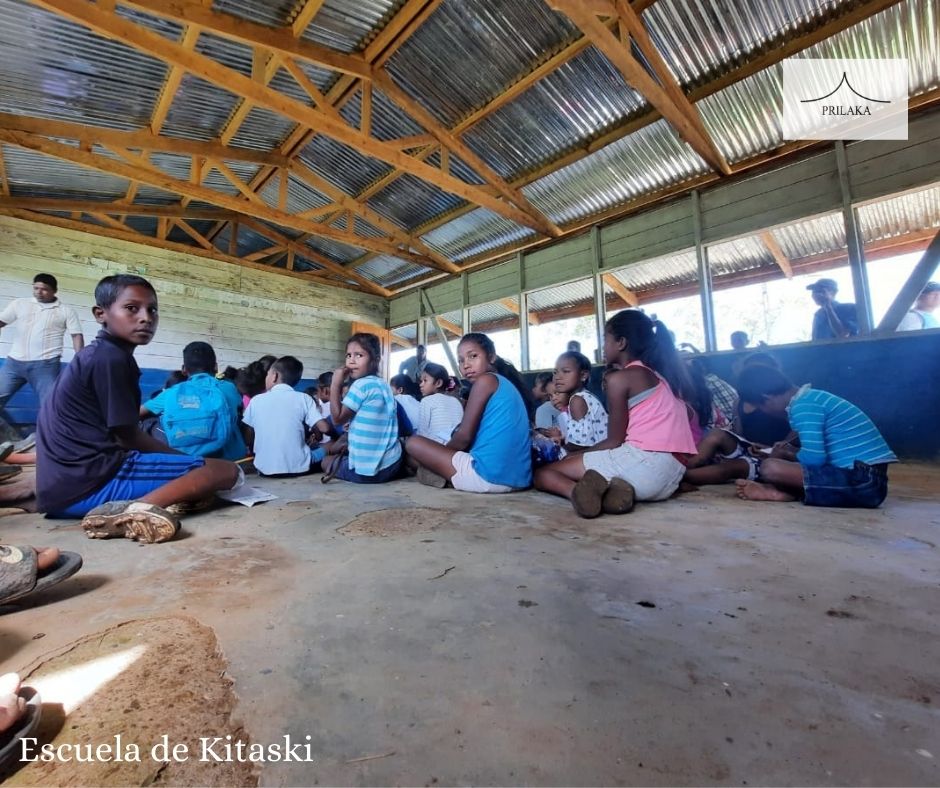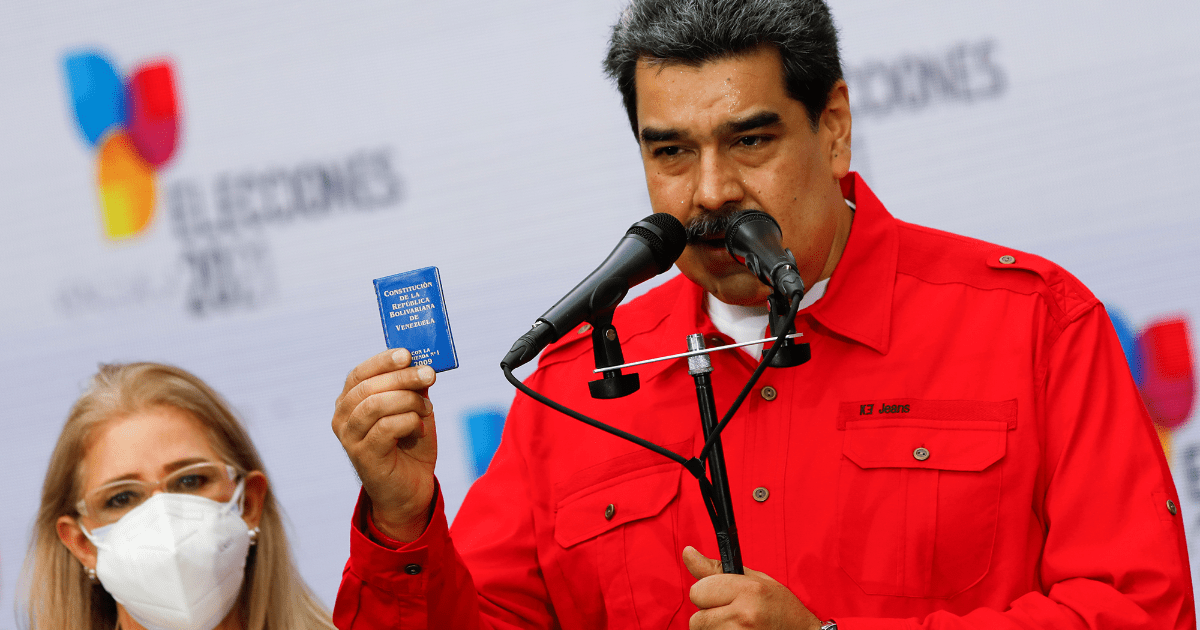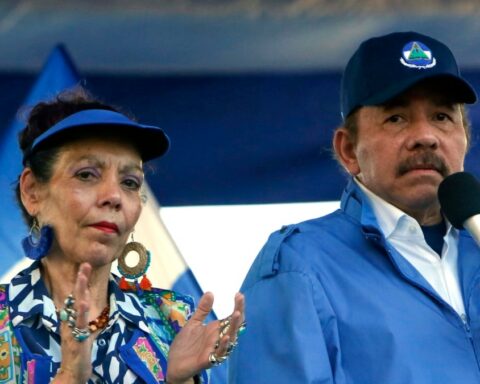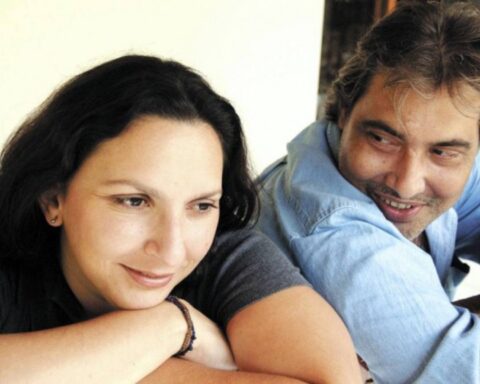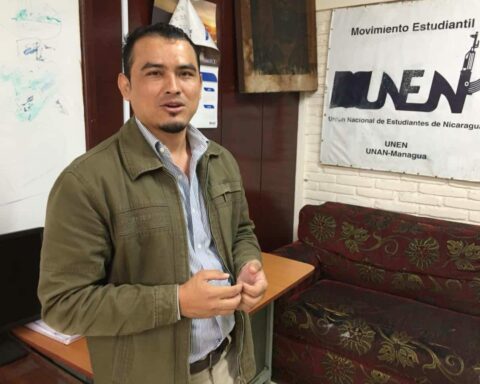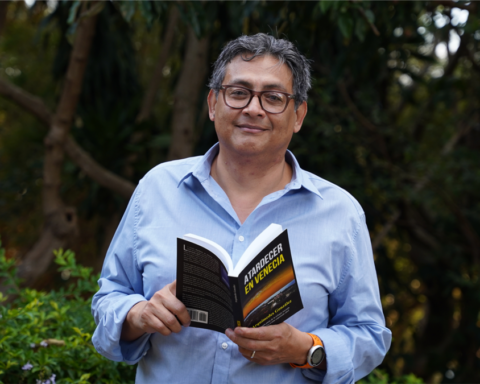Lying down, sitting or kneeling on the floor, students from 6 schools in the Li Lamni territory, located in the North Caribbean of Nicaragua, receive classes, he said in an interview with CONFIDENTIAL the Prilaka organization, which visited 12 communities in that territory at the beginning of this 2022.
The six schools they visited in Li Lamni are located in the Santa Isabel, Sang Sang, Kitaski, San Carlos, Linda Vista and Andris Tara communities. They all have in common problems of access to drinking water, electricity, desks and blackboards. The buildings of these schools are also in serious disrepair: some have no doors and others have semi-destroyed partitions, walls and ceilings.
The two classrooms in the Sang Sang Community School do not have doors. In Andris Tara, which has three classrooms, conditions are “worse”, according to Prilaka, because they are partitioned with destroyed wooden walls.
“There is no concentration because there are practically no divisions between the sections, the children still study on the floor, there is no blackboard and there are no desks,” explained Prilaka.
In the San Carlos school they have a deteriorated blackboard and a practically destroyed roof. In Santa Isabel, although the school building looks complete, it also has a deteriorated blackboard and no desks.
The case of the Linda Vista school is “worrying”. Prilaka explained that it is in worse condition due to the damage caused by hurricanes Eta and Iota.
“More than a year has passed since the hurricanes and no one has gone to see what they are doing. The roof of the building collapsed completely and no one has come to repair anything, “they indicated.
Kitaski’s school was also seriously affected by both hurricanes. The building had three classrooms and one address, but the impact of both natural phenomena forced the community members to dismantle one of the rooms, since the walls leaned and could collapse. This study center also does not have desks and blackboards, but the two sections it does have were restored during the 2021 election campaign.
Children suffer in precarious conditions
A community leader from Kitaski recounted, in an interview with CONFIDENTIAL, that the problem of lack of desks and blackboards in the Cristóbal Colón school dates back more than five years. He indicates that two of his seven children, who attend preschool and third grade at that school, do not know what it is like to receive classes in good conditions.
“When the school was built during the Government of Arnoldo Alemán, it was delivered in good conditions, they had chairs, blackboards, there were three classrooms and one address, but for six years they have not made improvements, the desks, the blackboard and with the passage of the hurricanes left one of the classrooms tilted and had to be disassembled, the Waspam Mayor’s Office came last year, during the election campaign, and repaired only two classrooms and did not bring desks or blackboards,” he explained.
He points out that his preschool son receives classes lying down or sitting on the floor, while his third grader now, after weeks receiving classes under a tree, sitting on the ground, a stone or a piece of wood, attends the course in the Community Church, after they negotiated with the religious the use of the temple and the benches so that the children from second to sixth grade would not experience sun or rain during school hours.
“What happens is that there are few classrooms for all grades, the first graders receive classes outside and the conditions are quite ugly because it rains a lot or there is a lot of sun. The preschoolers use the classrooms but spend lying down or sitting badly and the others now in the church, because we manage it”, he indicated.
He affirms that the minors express their desire to study in better conditions, but as a community they have not been able to do so due to the lack of economic resources, the lack of jobs and the permanent invasion of their plots.
He adds that even to survive, many Kitaski residents have to rent land in the neighboring country of Honduras, to cultivate and harvest their crops to feed themselves and earn some income.
“I rent land, I am in the bean harvest season, they charge me 1,000 córdobas per hectare during the harvest process and I have to give it up because I cannot return to my plot because it is invaded by settlers there,” he said.
He denounces that this government neglect leaves children with serious problems that range from poor quality education, because teachers teach the class with sheets of paper or cardboard, to damage to their health.
“We send them with clean clothes and they come back all dirty, their notebooks, their clothes, because they spend lying down or sitting on the floor. They also pass sick, with a lot of cough and body aches from being hunched over, sitting badly, or lying down, ”he pointed out.
In videos published by Prilaka, some community members from Kitaski demanded that the central, regional and municipal government authorities attend to their “local demands such as the rehabilitation of schools, bridges and other basic needs.”
“During the campaign period they have always promised us to build our school, they make the measurements, they show us the designs and everything remains in words,” they claimed.
The Ortega Murillo regime reported, after the passage of hurricanes Eta and Iota, that 261 schools were affected in the North Caribbean, leaving an estimated damage of 41 million córdobas. The Ministry of Education, at the beginning of January 2021, indicated that they were continuing to manufacture classrooms and would guarantee the school structure for the start of the school term. However, this response has not yet reached some communities.

